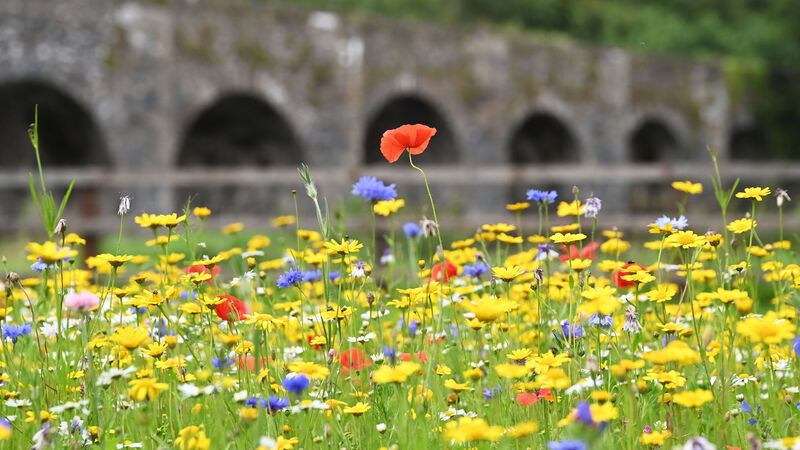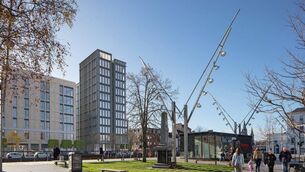Budget 2025: Cork environmental groups urge Government to ‘prioritise’ climate long-term

“If I plant some flowers in Cobh and the rains don’t come, I’ll go out and buy more seeds —where we work, people buy seeds once [and] don’t have resources to keep buying them," said Ms Kidney. Picture Denis Minihane.
Cork-based environmental groups are hoping that the Government prioritises the long-term future in the upcoming budget, with more money dedicated to climate action, and are looking for local groups to be given precedence.
Bernadette Connolly, of the Cork Environmental Forum, told The Echo: “We would like to see a much bigger portion of the budget going toward nature restoration and nature-based solutions to be incorporated in all projects.
“There needs to be funding allocated towards the management of Marine Protected Areas [MPAs] and personnel in local authorities with marine expertise.”
She proposed that the Apple windfall of almost €14bn, as it is a once-off, could go into retrofitting existing homes and rolling out training for skills needed in this area.
“Energy including heating is one of the most challenging areas and spending now on transitioning [away from fossil fuels] quicker will help immensely. The sooner we get off fossil fuels the better.”
But, in general, multi-annual funding streams would be preferable to one-off measures, she said, explaining: “It’s crazy that we run a country on one-year cycles, it makes it really hard to make plans.”
Ms Connolly mentioned the Government’s ambitious climate targets, and said: “We need really robust plans to meet these that have more community engagement.”
“Local authorities are hamstrung with so little funding, and they have a pivotal role with climate action.
“We also need to better disperse funds between local groups, because the people working on the ground is where a lot of the action will take place.”
Maria Kidney, of Brighter Communities, agreed that more funding for local groups was key to making changes happen.
She explained: “All the organisations in the NGO sector need the Government to give us the go ahead for locally led development in the area of climate action.
“We’re based in Cobh and partnered with a town in Kenya, where we’ve been working for 22 years.
“It’s the people on the ground and communities you work with who understand the concepts that need support.
“93% of the people we work with are farmers. Their income is connected to farming, which is connected to climate,” Ms Kidney said.
“If I plant some flowers in Cobh and the rains don’t come, I’ll go out and buy more seeds —where we work, people buy seeds once [and] don’t have resources to keep buying them.
“The climate out there has gotten so unpredictable and if rains don’t come, they go hungry. Nobody there has caused this climate change — they’re quite progressive with renewable energy, so they’re doing their level best.”
They need funding for education and for scientists to come up with ideas like a recent smokeless stove programme, which allowed a reduction in wood required by two thirds — better for the climate and much less work for the predominantly women and girls who run households.
Ms Kidney concluded: “Basically, we want to ensure that the Government commits to spend 0.7% of Gross National Income on overseas development by 2030 is realised — us in [the] sector are looking for an increase of €292m in 2025.
“We also need money to influence policies across the board — Ireland’s position in United Nations is very strong, but if we’re pushing other countries to invest more, we need to make sure our commitment to our goals is a real commitment.”







 App?
App?


